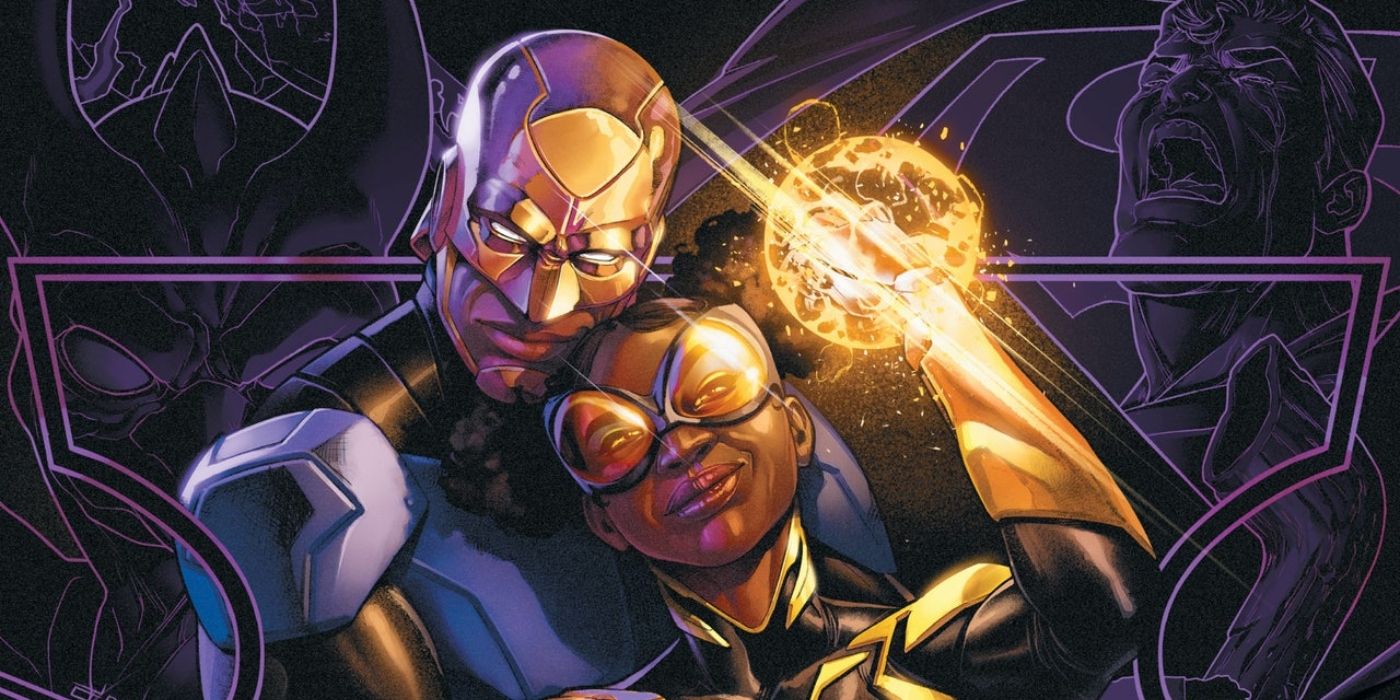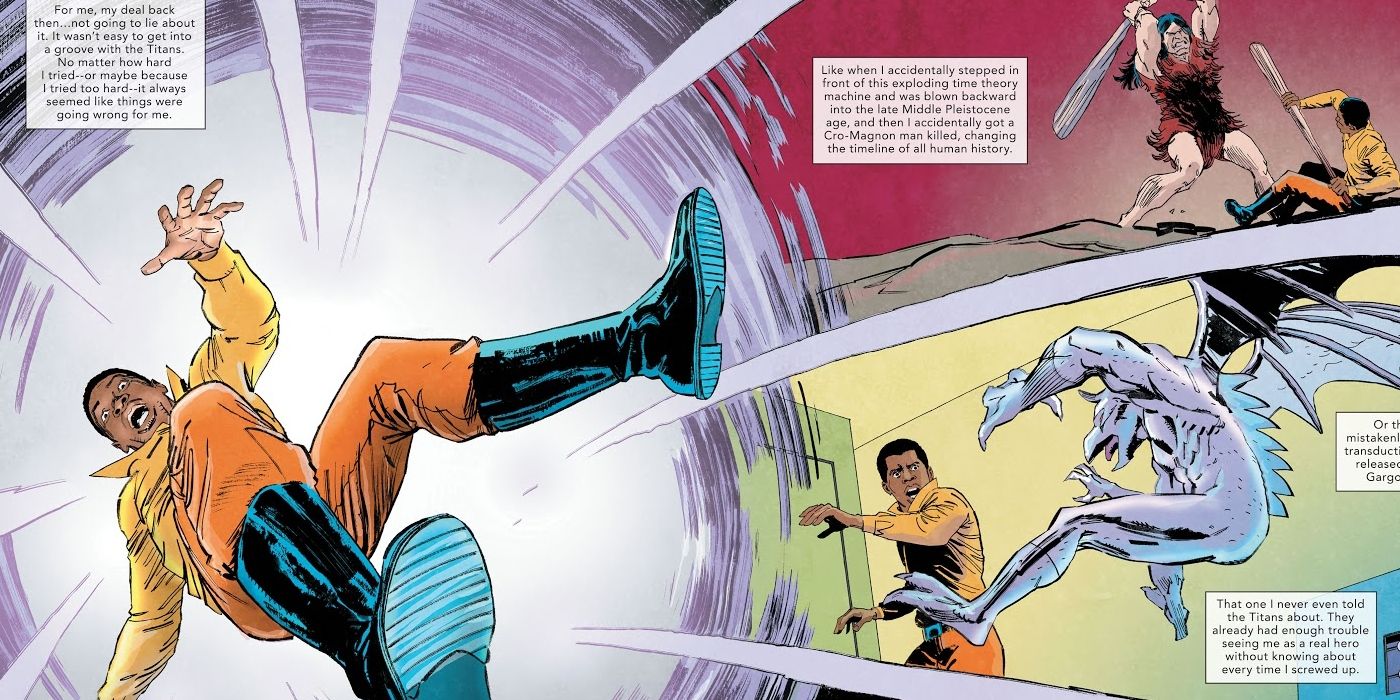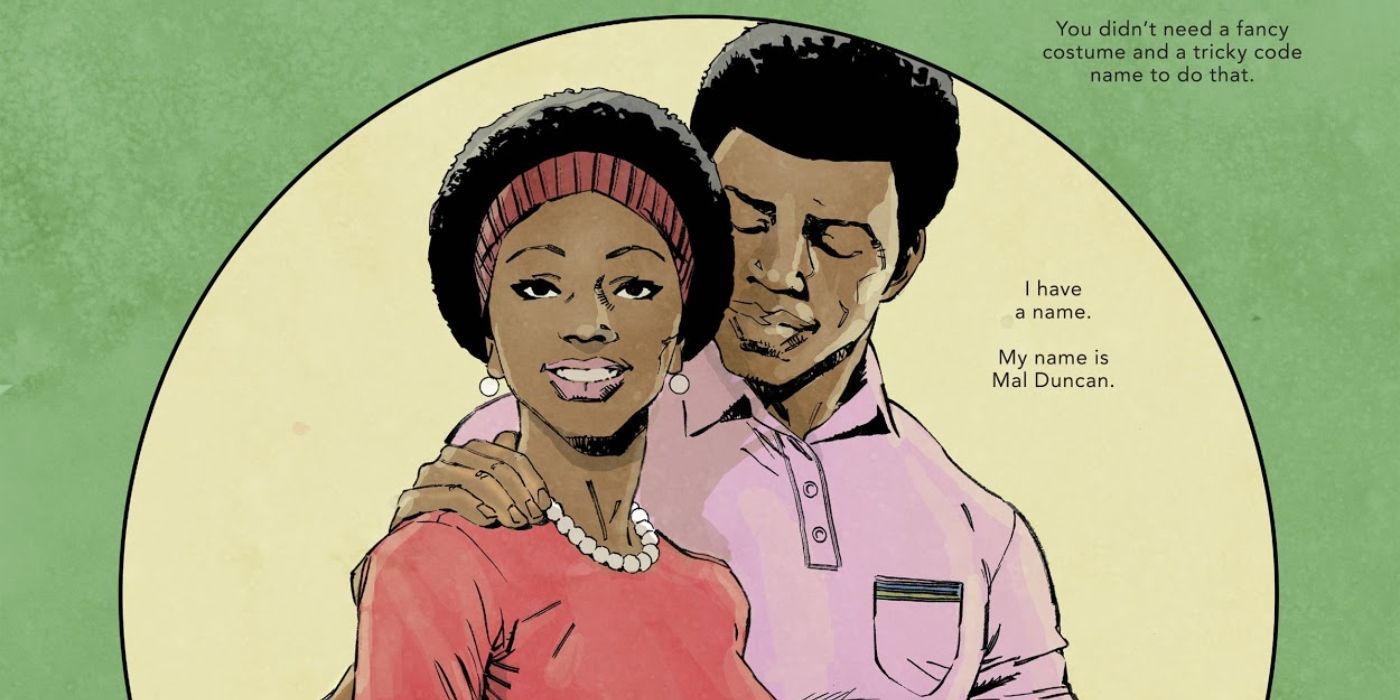
WARNING: The following article contains spoilers for The Other History of the DC Universe #2 by John Ridley, Giuseppe Camuncoli, Andrea Cucchi, and Jose Villarrubia, on sale now.
While the current "Future State" event explores the future of the DC Universe, The Other History of the DC Universe shines a light on the never before told history of the universe told from the viewpoint of marginalized characters. The second issue of the series shines the spotlight on Mal Duncan, one of DC Comics' first Black superheroes and illustrates how he looks back on his legacy as a hero, as well as his treatment at the hands of the very heroes he considered friends.
Mal Duncan debuted in Teen Titans #26 and was created by Robert Kanigher and Nick Cardy. He grew up in Hell's Corner in Metropolis and one day saved a group of teenagers from the leader of a gang called the Hell Hawks. As it turns out, this group of seemingly lost teenagers were the Teen Titans, trying to lay low in a part of town that they clearly didn't understand. But Mal's efforts saving them earned him a place amongst them.

Mal would grapple with feelings of inadequacy though, due to not having any special powers to bring to the table, which is an odd assertion considering that Robin and Speedy were a part of the team at the time. But Mal would find a way to help out more when he discovered a strength enhancing exoskeleton and became the new Guardian. From there, Mal would have various superhero identities as he shifted in and out of the life. But no matter what, Mal Duncan was always a man who tried to act with responsibility and integrity.
The Other History of the DC Universe #2 focuses on Mal's sense of responsibility and inadequacy and how the Teen Titans did nothing to help with those feelings. From Mal's point of view, his time on the Titans was one as little more than a mascot and the token person of color at times. He put his best effort into being a Teen Titan, but even as a part of the team, he felt like he was on the outside looking in. And his teammates' behavior certainly reinforced this belief, with their own personal issues pouring more fuel onto the flame.
The Titans broke up on more than one occasion, but Mal was always loyal to the team. In his words, the heroes who composed the team were "fair-weather friends" They would only stick around for so long before adversity forced them to pursue their separate paths. But Mal was built from sterner stuff. Because of his upbringing and experiences, he had more hope for the future of the Teen Titans than its founders did, because he believed that despite the various issues the team has had, it was still a good place for people to learn about themselves and move forward with their lives.

But the Titans often overlooked Mal and his contributions to the team. Even after assuming the Guardian identity, after months of trying to prove himself to them, Speedy still took nearly every opportunity badmouth Mal. This disregard only became more obvious when the Titans recruited Mal's girlfriend, Karen Beecher, to the team, giving her the codename Bumblebee. In just a day, they had accepted another Black person to the team when it had taken months for the Titans to consider Mal a real hero.
But perhaps the greatest evidence of being overlooked is how, when the Titans reformed for a third time, they didn't even bother inviting Mal, instead recruiting Vic Stone in his place. This only furthered the notion that Mal was the token Black member, something he tried to overlook in favor of being happy for Cyborg, who was treated with much more respect than he ever was. But even though Mal had suffered through the treatment of the people he considered friends, he still managed to build a respectable life, leaving the heroics behind in favor of being a husband and father. He essentially did what none of his fellow Titans ever could; Mal Duncan established a consistent and happy life.
0 Comments